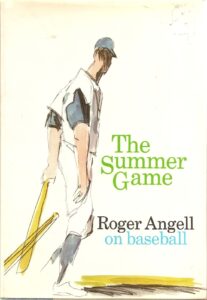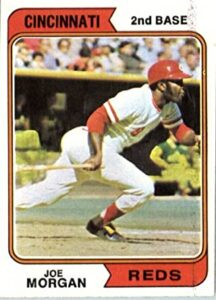I don’t do well with change. You know how little kids have trouble with transitions, how you need to warn them about impending shifts in circumstance? “Sweetie, I know it’s been fun visiting Grandma and Grandpa, but in a few minutes we’re going to have to say goodbye, okay?” Sometimes even fair warning can’t stave off a complete meltdown, but it’s the only tool we have, right?
Well, I’m not much different from a toddler in this respect. I don’t like transitions. The way I see it, I’m close to sixty years old and at this point I have set up my life pretty much the way I want it to be. So, change equals bad.
In the last two months, my dentist and my general practitioner have both announced that they are leaving their practices, and my therapist has told me that due to the fact she’s about to have her first child (truthfully, I am very, very happy for her and her partner), she will be stepping back from her practice for the next half year or so.
It’s me, isn’t it? This is not mere coincidence. I don’t know what I did, but clearly I did something. I shower. I brush my teeth. And even if I didn’t do these things, my therapist and I do tele-therapy sessions, so she wouldn’t know.
All kidding aside, I have been with my GP for close to twenty years, my dentist for more than ten. Relationships like those are not easily replaced. And I really don’t do well with change . . . .
This is one of those Monday posts that’s going to bounce around a lot. It’s not that I have nothing on my mind, nothing to write about. It’s that I have too many things, and some of them are best left unsaid, at least in a public forum. I’m not very good at keeping my mouth shut, figuratively or literally. When I’m pissed off, I tend to say so, and I don’t hesitate to call people out for bad behavior. This sounds admirable in some ways. Really it’s not. It gets me in trouble far more often than not. It rarely makes any situation better.
And so this week, I am looking for things to write and I have lots of ideas. But each one bumps up against my (admittedly underdeveloped) sense of discretion.
In order to avoid creating problems closer to home, I have considered writing about the Yankees and the Mets, my two beloved baseball teams, who are both in the process of blowing massive leads they enjoyed in their respective divisions not so very long ago. But I complain about such things just about every year. If I’m not complaining about them blowing a lead, I’m complaining about them not having a lead. If I’m not complaining about the Yankees, I’m complaining about the Mets. It’s actually a rare season in which I can complain legitimately about both, so I suppose I should be grateful. But let’s be honest: no one wants to read my complaints about two privileged but poorly run New York teams who can’t get their shit together. So, moving on . . . .
I have also considered writing about the upcoming midterm elections, which are looking far better for the progressive-minded today than they were a few months ago. But let’s be honest, midterms usually hurt the party in power, and with inflation high, gas prices still above normal, and the country polarized, things don’t look great. I won’t get into who is to blame for what, except to say that inflation and gas prices are high everywhere, all over the world. The U.S. is hardly an outlier in this regard. In fact, things are better here than in most places.
The problem is, though, politics these days is one of the things that sets off my anxiety in a big way. And since my therapist will soon be unavailable (please refer back to paragraph 3), well, focusing on the midterms is probably not the best idea from a mental health perspective. I used to be able to manage my political anxiety. But the perils faced by our system of government have grown so frightening, so violent, so persistent, that whenever I dive into the topic and confront the existential threat to what I once believed was a stable republic, I kind of freak out. So, I think I’ll move on again.
I am not alone in any of this, I know. Anticipating the many kind comments this post is likely to prompt, I will say that I really am okay. The doctors thing? I’ll find new practitioners, and they will be fine. Better than fine, most likely. The Yankees and Mets? Many of us grow a bit irrational about our sports loyalties. For some it’s soccer, for some it’s basketball, for some it’s American football at either the pro or college level. For me it’s baseball. I’ll get over it. I do every season. And the politics? We are all under threat. We are all invested in the stability of our republic, regardless of ideology or party affiliation. And at some point, I believe, both sides will recognize the threat and turn down the temperature a bit. We will get through this.
But now you know a bit more about me. Not the prettiest of pictures. At least I’m honest, though, right?
Have a great week.









 Beginning in 1962, and continuing through most of the next sixty years, Angell wrote about baseball, contributing articles to The New Yorker a couple of times each season, usually once during spring training, and once at the end of the World Series. Some seasons he added a mid-season essay. His articles were later collected in volumes — The Summer Game (1972), Five Seasons (1977), Late Innings (1982), Season Ticket (1988), and Once More Around the Park (1991). I own all of them, and have read them multiple times.
Beginning in 1962, and continuing through most of the next sixty years, Angell wrote about baseball, contributing articles to The New Yorker a couple of times each season, usually once during spring training, and once at the end of the World Series. Some seasons he added a mid-season essay. His articles were later collected in volumes — The Summer Game (1972), Five Seasons (1977), Late Innings (1982), Season Ticket (1988), and Once More Around the Park (1991). I own all of them, and have read them multiple times. “Aha!!” I was able to reply. “What about Joe Morgan? Two time Most Valuable Player, perennial All-Star, World Series champion. He’s five foot seven!” Besides, I assured them. I didn’t expect or need to be six feet tall. I would be perfectly happy with five foot ten, like my hero, Roy White.
“Aha!!” I was able to reply. “What about Joe Morgan? Two time Most Valuable Player, perennial All-Star, World Series champion. He’s five foot seven!” Besides, I assured them. I didn’t expect or need to be six feet tall. I would be perfectly happy with five foot ten, like my hero, Roy White.